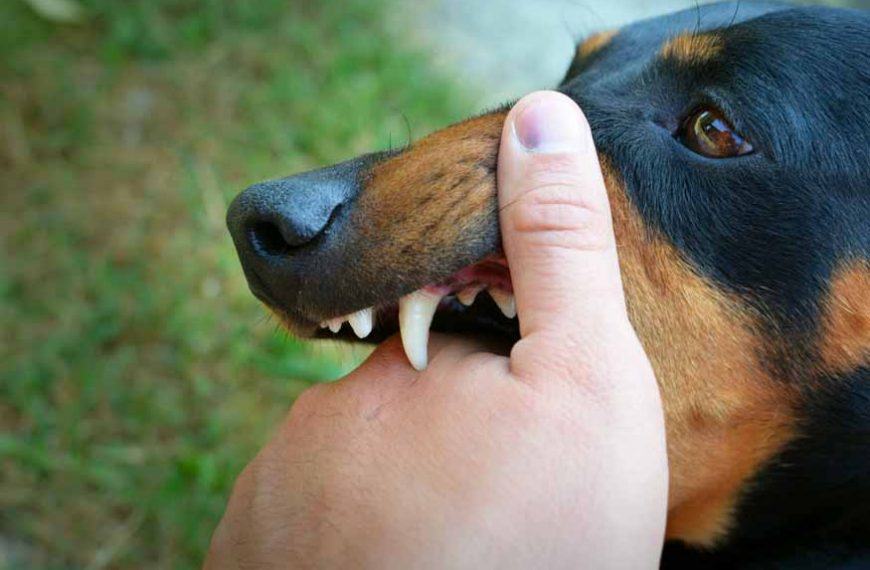Having pet dogs is super fun! They make us really happy and are our best pals, especially if we’re kids. But sometimes, something not-so-fun happens – dogs can sometimes bite, especially to little kids. It’s important to know what to do to stop dog bites and keep kids safe. This article will help all the moms and dads learn all about taking care of kids when it comes to dog bites. You’ll learn how to help if a dog bites and how to make sure it doesn’t happen in the first place.
Understanding Dog Bite First Aid
When a doggie bite happens, you need to do stuff right away. First, see how bad it is. If it’s just a little bite, you should wash it softly with soap and water and put on some special germ-killing medicine. But if it’s a big bite and there’s lots of blood, press down on it with a bandage and get to the doctor super quick. Also, make sure the kid got their tetanus shot, and if you’re not sure if the doggie got their shots, think about rabies stuff. Doing these things helps keep the owies away and stops them from getting worse.
Dog Bite Cases: A Growing Concern
Dog bites when kids are involved are really scary! A lot of kids get bitten by dogs every year, and some even need to go to the doctor because of it. It can hurt their bodies and make them feel gloomy. It’s important to know why these things happen so we can stop them from happening again. As parents, it’s your responsibility to make a note of it for future occurrences.
Effective Dog Bite Management
When a dog bites, there are a lot of things you need to do. First, you have to go to the doctor right away. They’ll look at the kid’s wound, clean it up, and maybe use some special string called sutures to fix it. Sometimes, if the bite is really, really bad, you might have to stay in the hospital.
But that’s not all! Kids also have to tell the grown-ups in charge, like the police or animal control. They’ll check on the dog to make sure it’s not sick or mean. This way, we can make sure everyone is safe and okay. Doing all these things helps make the hurt go away and keeps everyone safe and happy.
Dog Bite Prevention: Key Strategies
Preventing dog bites is undoubtedly the ideal scenario. Educating both children and dog owners is paramount. Teach children how to interact safely with dogs, emphasising respect for the animal’s boundaries. Dog owners must socialise and train their pets adequately, ensuring they are comfortable around children. Supervision is crucial, especially when dogs and children are together. Understanding canine body language can also aid in preventing dog bites. By adopting these strategies, we can reduce the risk of dog bite incidents significantly.
Dog Bite Prevention: Educate and Communicate
Stopping dogs from biting is like a big puzzle we need to solve together. It starts with learning and talking to each other. Grown-ups, like moms and dads, need to teach kids about how dogs act and how to be nice to them. Kids should always talk to grown-ups if they see something strange or not so nice with a dog.
Also, people who have dogs should tell their friends or visitors what their doggie is like and what they can do around them. And dogs should meet other dogs and people when they are young, so they learn to be friendly and kind. So, it’s all about learning and talking and being friends with the dogs.
The Role of Canine Socialization
Meeting lots of people and going to different places is super important for puppies so they can grow up to be friendly dogs. This helps them learn how to behave and not be mean to new people, even kids. If you have a dog, and you’re not sure how to do this right, it’s a good idea to ask an experienced person who knows about dogs for help. Dogs that are good at making friends are less likely to act mean when they meet new people or go to new places, and that helps stop them from biting.
Supervision: A Crucial Preventive Measure
Watching out for dogs is extremely important to stop them from biting kids. Grown-ups should always keep a close eye on dogs and kids when they’re together, especially when they’re just starting to be friends. This way, we can see if the dog feels worried or not happy and help them feel better. Also, when we watch, we can make sure kids are nice to dogs and don’t do things that might make the dog scared or upset. Taking care of a dog and keeping kids safe is something good grown-ups do.
Recognizing Canine Body Language
Learning about how dogs talk with their bodies is very important for both grown-ups and kids. Dogs don’t use words like us, so they tell us how they’re feeling with their bodies. It’s kind of like their secret language!
We need to be careful and watch out for signs that show if a dog is scared, worried, or maybe not feeling so good. These signs can be when a dog stands really straight, growls, shows their teeth or tries to stay away from us. It’s a good idea for us to remember to give dogs their own space and not go close to them without asking the person who takes care of the dog first. That way, we can be safe and keep the dogs happy too! So, by knowing and being kind to dogs with our actions, we can make sure we don’t get into tricky situations with them.
To sum it up, when a dog bites a kid, it’s a big worry, and we need to do things to stop it and help the child feel better. We have to quickly help the dog bite so it doesn’t get worse. We also need to know why dogs sometimes bite and what to do about it. And we must learn how to make sure dogs and kids get along and stay safe. When we do all these things, we make sure everyone, kids, and dogs, are happy and safe.
If you want a super safe and fun place for your child to learn and grow, you should totally check out EuroKids. We have really nice teachers and experts who know all about kids and make learning super cool. You can go to our website to see all the fun stuff we do and even sign up! Your child’s awesome future starts right here with us!
The information provided on this website is not a substitute for professional medical advice. EuroKids encourages you to consult with a qualified healthcare professional for any health concerns you may have. The information on this website is not intended to diagnose, treat, cure, or prevent any disease.
















